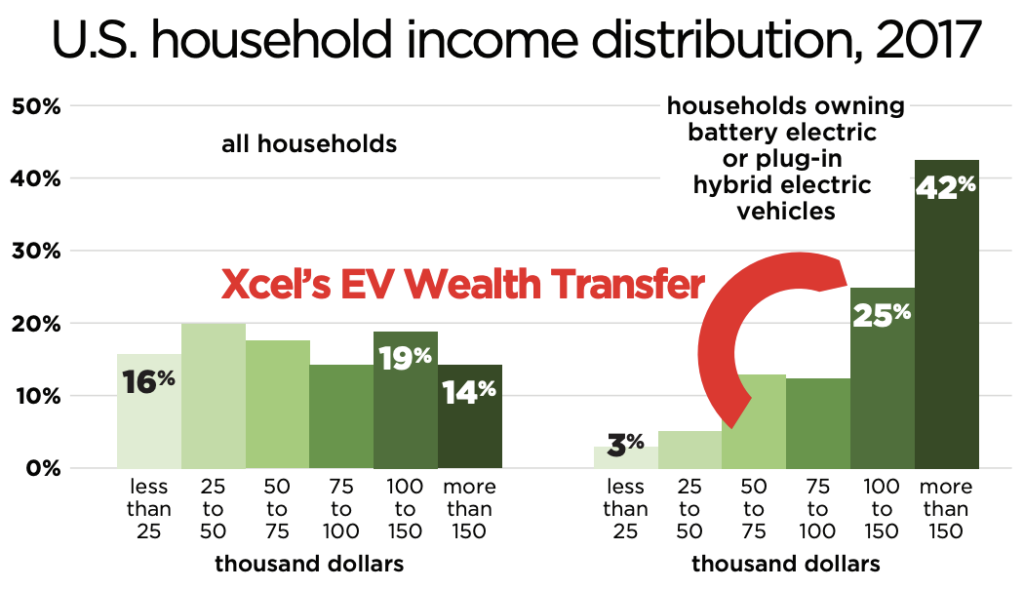Xcel-onomics
How Xcel will make money by using part of your electric bill to help liberal, rich, white guys pay for their new Teslas.
Xcel Energy recently floated a plan in the Star Tribune to increase the number of electric vehicles (EVs) on the road by offering rebates of up to $2,500 to people who purchase them. These rebates, which will most likely be paid to wealthy urban liberals, will come from your electric bill.
To understand how this works, you have to know a little about the convoluted marketplace in which Xcel does business. First and foremost, most people don’t know that Xcel isn’t a traditional private business but a government-approved monopoly. Xcel customers have no freedom to shop for better deals from other providers. The State of Minnesota requires them to buy their electricity from Xcel, no matter how much it charges.
For that reason, Xcel doesn’t get to profit from the electricity it sells. Instead, the company is allowed to rake in a guaranteed profit every time it spends money. The more Xcel spends—whether on wind turbines, solar panels, corporate c-suites, and even potentially EV rebate programs—the more money it earns for its shareholders.
The Star Tribune article admitted that “details are light on Xcel’s rebate proposal,” but it is clear that Xcel plans to charge customers more for their electricity to pay for the rebates, even though most EV buyers are wealthier than the rest of us.
And they really are.
Research from Morgan State University reveals that 85 percent of EV owners are educated, affluent, older white males who are more environmentally focused than owners of internal combustion engine vehicles.
“EVs were most popular among Democrats, and least among those not interested in politics,” the report says.
Meaning, the rest of us will most likely be paying more to keep the lights on to subsidize the EV purchases for wealthy liberals in the Twin Cities.
In fact, 86.8 percent of battery EVs in Minnesota are registered in the seven-county metro area, according to the Atlas EV Hub, an online dashboard. According to the Energy Information Administration, 67 percent of EV-owning households make more than $100,000 per year, meaning Xcel’s plan is siphoning money from low and middle-income families to give to those who make more money. It is unclear how anyone could construe this as “environmental justice.”

While Xcel’s CEO Ben Fowke tried to play up the environmental benefits of this spending spree, the plan is really an attempt for Xcel to get its hands on another type of green: your hard-earned money. The $150 million Xcel wants to spend on EVs is a down payment on future spending. If EVs increase the need for more power plants, then Xcel gets to spend even more money, and make even bigger profits.
According to a recent slideshow from Xcel, the company plans to spend an additional $8.9 billion from 2020 through 2024, and you will have the privilege of paying for this spending through much higher electricity prices.